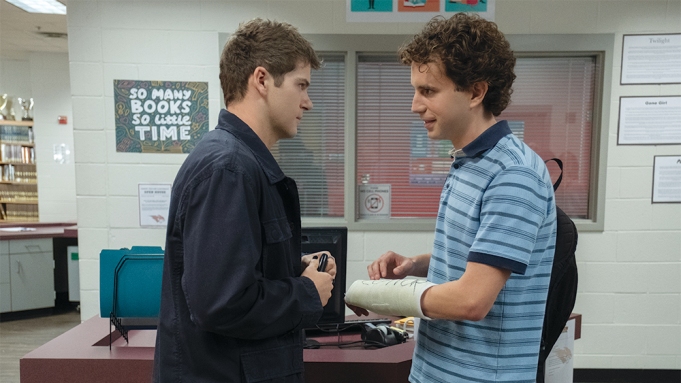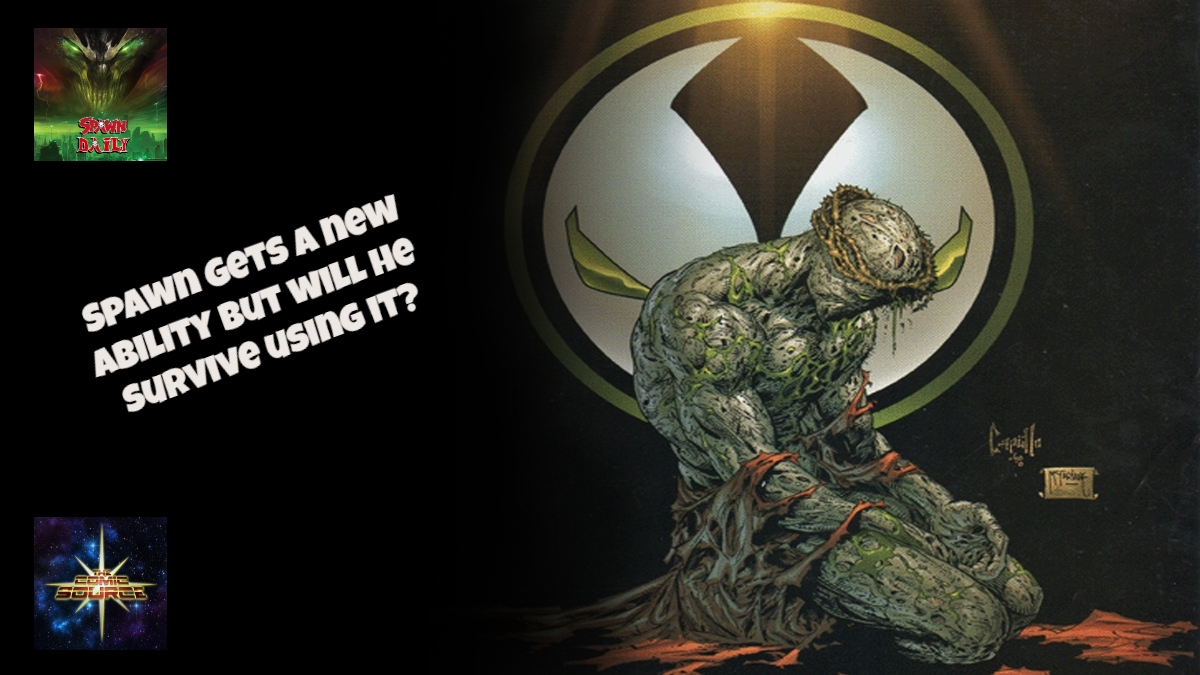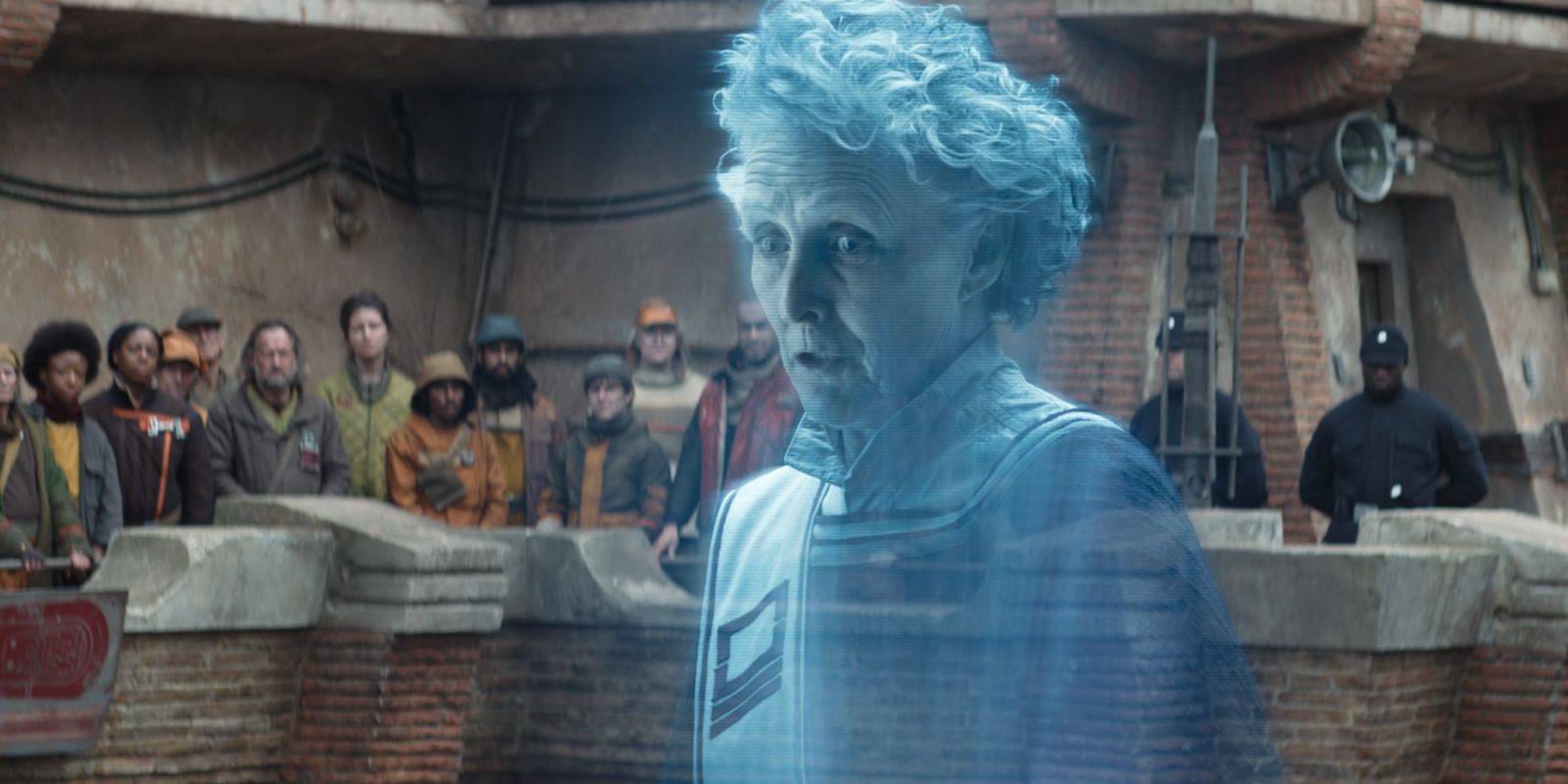Dear Evan Hansen is an adaptation of the stage musical that tells the story of Evan (Ben Platt), a senior in high school struggling to fit in. To boost his self-confidence, Evan’s therapist has assigned regular homework: write positive letters to himself. One of these notes inadvertently ends up in the hands of Connor (Colton Ryan), a fellow teenager with his own personal troubles. Soon after, Connor takes his life with Evan’s letter on his person. This discovery leads Connor’s family to, incorrectly, assume that Evan was his close friend. While Evan initially tries to set the record straight, he eventually embraces the lie begins to enjoy his newfound attention.
What works in Dear Evan Hansen is the performance of “Sincerely, Me.” This song illustrates the fictitious relationship between Evan and Connor taking its lyrics from the fake emails constructed by Evan and his “family friend” Jared (Nik Dodani). The execution is quite whimsical, and particularly showcases Ryan’s energy and charisma—a humorous contrast to his character’s earlier demeanor. “Sincerely, Me” is an instance where director Stephen Chbosky leveraged his big screen palette to expand the scope of the musical number to something far grander than its theater equivalent.
RELATED: Dear Evan Hansen Star Danny Pino On Parenting And Communication [Exclusive Interview]
Many individuals may take serious issue with Dear Evan Hansen given the way it handles tragedy and people attempting to benefit from it—especially to such duplicitous ends. Evan is extremely difficult to identify with, let alone root for. His actions disrespect Connor through misrepresentation mostly for Evan’s gain, which includes getting romantically involved with the deceased’s sister. As Evan’s lies compound, audiences may find themselves very uncomfortable with increasingly cringe-worth activity and dialogue, all the while waiting for the inevitable other shoe to drop.
Dear Evan Hansen was Broadway darling, garnering several accolades including multiple Tonys. Unfortunately, this material appears incredibly ill-fitted for cinema, as the films highlights several problems with the narrative, particularly how mental health gets used as a plot device for the “hero.”
Not Recommended.

 FOR FANBOYS, BY FANBOYS
Have you checked out LRM Online’s official podcasts and videos on The Genreverse Podcast Network? Available on YouTube and all your favorite podcast apps, This multimedia empire includes The Daily CoG, Breaking Geek Radio: The Podcast, GeekScholars Movie News, Anime-Versal Review Podcast, and our Star Wars dedicated podcast The Cantina. Check it out by listening on all your favorite podcast apps, or watching on YouTube!
Subscribe on: Apple Podcasts | Spotify | SoundCloud | Stitcher | Google Play
FOR FANBOYS, BY FANBOYS
Have you checked out LRM Online’s official podcasts and videos on The Genreverse Podcast Network? Available on YouTube and all your favorite podcast apps, This multimedia empire includes The Daily CoG, Breaking Geek Radio: The Podcast, GeekScholars Movie News, Anime-Versal Review Podcast, and our Star Wars dedicated podcast The Cantina. Check it out by listening on all your favorite podcast apps, or watching on YouTube!
Subscribe on: Apple Podcasts | Spotify | SoundCloud | Stitcher | Google Play




